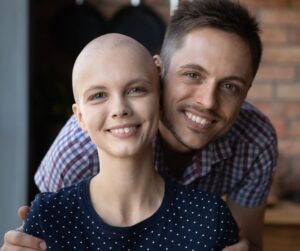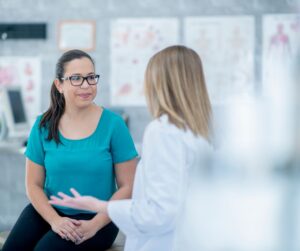Carol Peyton Bryant, DNP, RN, ACNP-BC, CCRN-K
Health care providers take pride in their ability to connect with their patients and families. During the pandemic, as much social, political, and racial unrest surfaced, hematology/oncology team members at Mayo Clinic Arizona came together to question what we really knew about the beliefs and cultures of our patients, families, and even our own co-workers. These conversations caused us to stop and ask the question, “Do we know/support the cultural beliefs of our patients and peers?”
We as a team began to hold conversations about needed growth and an opportunity for change. As a group, we enrolled in an implicit bias course offered by Mayo Clinic and Arizona State University. We embarked on learning how we could better serve our patients with cancer and each other. We decided we would start a monthly book club that focused on individuals’ lived experiences and beliefs. Our hem/onc book club was born! Initially, we extended invitations within our division alone but later opened the book club to any employee of Mayo Clinic Arizona. Meetings were first limited to Zoom/Teams, and now we meet in person and on Teams for a broader audience.
Criteria for book selection include non-fiction books, and it must have been read by someone in the group and by myself as the facilitator prior to announcing the book. One other criterion centers on the book author and if they received approval to write about the population that is the subject of the book: In essence, did the author have the blessing of that population with regard to accuracy? For example, Kent Nerburn, the author of Neither Wolf nor Dog: On Forgotten Roads With an Indian Elder, collaborated with Native American tribes while writing the book, and the book was supported by the Native American tribes it addressed. As the facilitator, it is my responsibility to research each book, author, subject, and how the theme relates to education of a particular group of people.
We are in the process of starting a pre-and post-survey for the books we read to see what impact these books may have on our awareness of ourselves and others. Already we have seen an increased awareness of our own perceptions, and we hold conversations about recognizing biases we may not have been aware of prior to reading some of our selections. The exciting thing about our book club is that as world or social issues are brought forth in our lives, we easily find books to help us grow and begin to understand some of the challenges and opportunities for making the world a better place—a world where we all value each other and accept each other for the persons we are today. Please see the list of the books we have read and currently reading. Anyone can start a book club, and we challenge you within your own hem/onc division to engage in this great way to learn.
Carol Peyton Bryant, DNP, RN, ACNP-BC, CCRN-K, is the advanced practice provider hematology/oncology supervisor at Mayo Clinic Arizona; she is a member of the Oncology Connection Editorial Board. She welcomes inquiries about their social consciousness-raising book club.
For further questions, please reach out to: tocnewsletter@horizoncme.com







